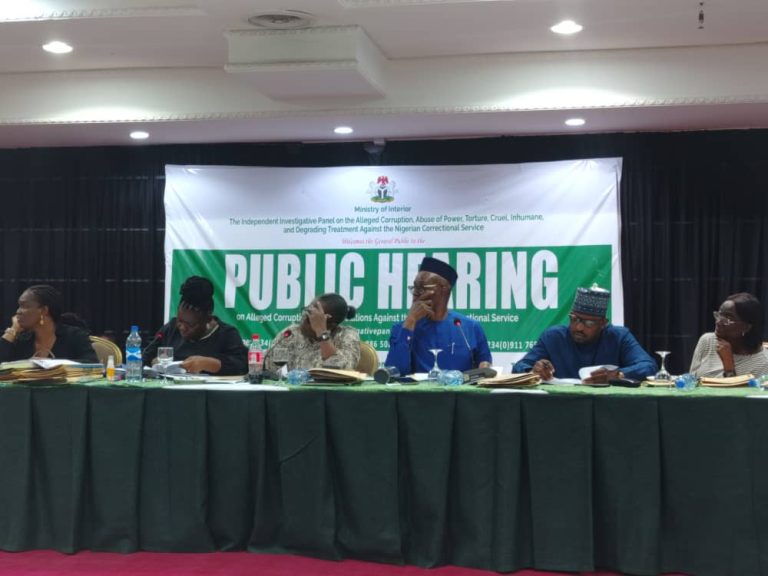NCoS Reform: Commission Identifies Key Areas for Improvement**
The independent commission of inquiry into allegations of corruption and human rights violations in the Nigerian Correctional Service (NCoS) has identified key areas for reform, with a focus on vulnerable populations, rehabilitation, and reintegration of prisoners.
Dr. Magdalene Ajani, chairperson of the commission, revealed this during a press conference at the end of the commission’s second two-week public hearing, held in Abuja on Friday. She commended the NCoS for its openness and cooperation during the hearing and expressed gratitude to stakeholders, including the Nigerian Judicial Council (NJC), the Nigeria Police Force (NPF), UNICEF, NDLEA, the United Nations Office on Drugs and Crime (UNODC), the Nigeria Security and Civil Defense Corps (NSCDC), and the Legal Aid Council, for their support.
The commission’s investigation aimed to address allegations of corruption, abuse of power, and degrading treatment within the NCoS. Dr. Ajani welcomed the initiative to reform the prison service and noted that steps had already been taken to correct some anomalies.
“The panel continues its work and seeks the continued support of Nigerians in its efforts to create a more efficient NCoS, one that delivers effective services to Nigerians and prisoners in a more humane environment,” he said.
Dr. Ajani also thanked the Minister of Interior, Dr. Olubunmi Tunji-Ojo, for his support in establishing the independent investigative panel to look into issues within the NCoS.
Dr. Uju Agomoh, Secretary of the Expert Group, highlighted priority areas, including the implementation of Sections 34, 35, 13, and 14 of the Nigerian Correctional Service Act of 2019. These provisions address the needs of women, persons with mental and physical disabilities, and young offenders.
The panel also emphasized the importance of maximizing profits for prison system businesses, as mandated by the NCoS Act. This initiative aims to provide prisoners with funds for their reintegration and support their rehabilitation.
“The panel requested the NCoS to submit a report on the implementation of these provisions, including recommendations to address challenges,” said Dr. Agomoh.
The panel also highlighted the need for good conduct certification, rehabilitation programs, and mental health support under Section 24 of the Act. This provision ensures that prisoners with mental health issues receive appropriate care and support.
Dr. Agomoh encouraged the public to support the NCoS by providing it with equipment and personnel, stressing that such collaboration would enhance the rehabilitation and reintegration of prisoners.
The panel also commended the partnership between the National Open University of Nigeria (NOUN) and the NCoS and called for more sustainable mechanisms for skills acquisition and training within correctional facilities.
“These recommendations aim to enhance the rehabilitation and reintegration of inmates, with an emphasis on skills training, education, and mental health support,” he said.
The panel also requested the cooperation of the judiciary in the implementation of Sections 12, 13, and 14 of the NCoS Act, which address the rights and treatment of prisoners.
Other panel members commended the Minister of Home Affairs for seizing the opportunity to investigate the allegations against the NCoS and reiterated their commitment to meaningful reform of the correctional system.



